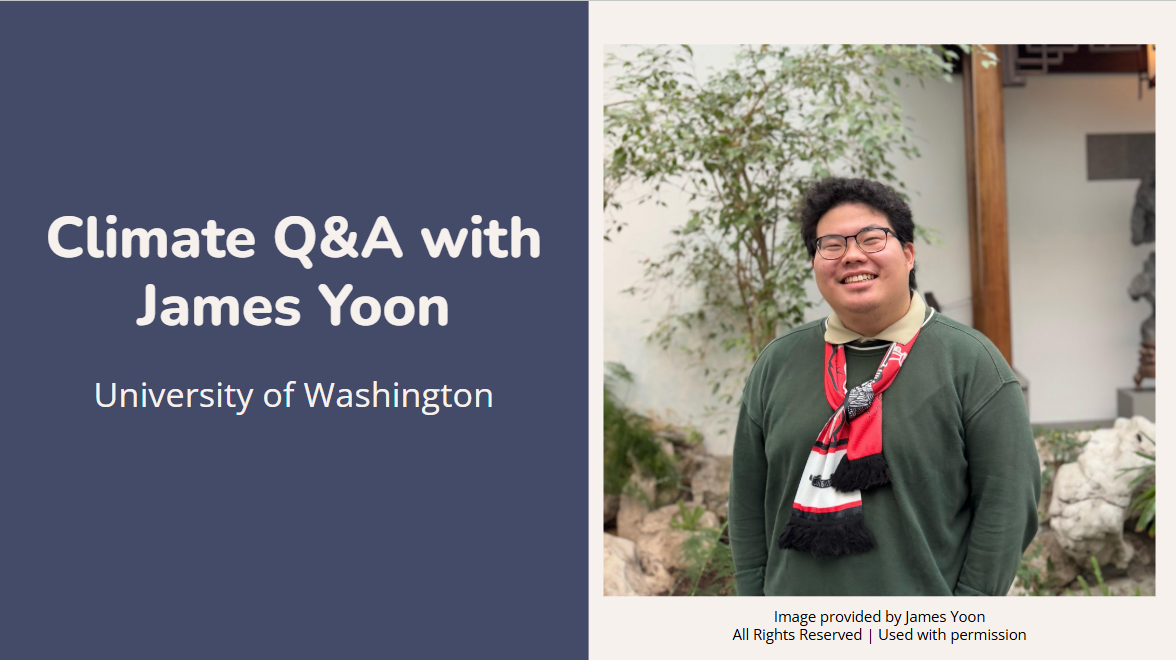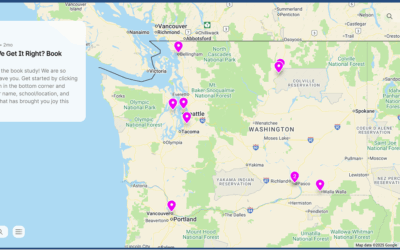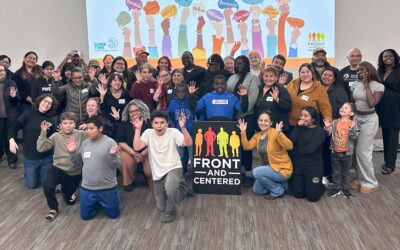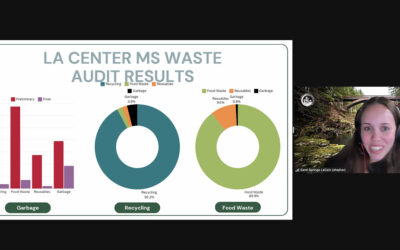In the winter and spring of 2025, 24 educators from across Washington state participated in EarthGen’s STEM Seminar: Climate Emotions and Creative Expressions. Through online asynchronous work and a series of virtual synchronous sessions, participants explored data, learned from community experts, and implemented climate conversations into their classrooms through creative expression.
Expert Insights:
Educators received an introduction to climate change from Dr. Kat Huybers, a lecturer in the Atmospheric Sciences Department at the University of Washington, and had the opportunity to ask follow-up questions and explore data around climate emotions with James Yoon, a PhD student at the University of Washington.
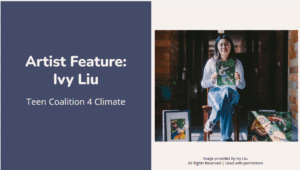
Featured Speaker: Ivy Liu, artist and founder of Teen Coalition 4 Climate
Creative Exploration & Inspirational Guest Speaker:
Participants worked asynchronously to explore various multimodal artistic works that highlighted creative expression as a response to climate change and considered opportunities to incorporate artwork into their teaching practice. The group was joined by guest speaker Ivy Liu, a high school artist from Seattle and founder of the Teen Coalition for Climate. Ivy shared how her life experiences have impacted the direction of her work and inspired her to start the coalition as a place to amplify the voices and perspectives of other youth, especially those who feel their voices are not being heard. As one participant stated, “I am a pretty shy, fly-under-the-radar kind of person but after listening to Ivy, I feel really inspired. She started small but made an impact. Everything counts. I can contribute in a meaningful way.”Another participant noted “I really enjoyed taking this STEM seminar. I loved having the chance to combine a variety of different content areas and dive deeper into creating climate change lessons. During the synchronous sessions, I found the guest speakers to be really inspiring, and both James and Ivy made me feel more optimistic about our future.”
Implementation and Outcomes:
At the end of the seminar series, participants implemented what they learned with their students and reported feeling more prepared to incorporate age-appropriate climate conversations with their students in the future. Some educators utilized read-alouds, images, and videos paired with creative expression prompts. Others took their students outdoors and created nature art. Others incorporated new resources and strategies into their current science units. Older students engaged with podcasts and reflected on the emotions that came up during their learning. Beautiful nature journal entries were submitted as student artifacts. One implementation even led to a student-driven action project in the school community!

Example of student work from Vivian Watson Gaither’s class at Clallam Bay Elementary
Participant Quotes:
– “[I learned] How important it is to hold space for our students’ emotions (and our own) as we study environmental and other topics that affect our natural systems, giving students an outlet to share their feelings and providing opportunities to experience hope within the uncertainties.”
– “I feel more confident now in my ability to offer support when it comes to action planning. I believe this course has helped me understand how to approach action planning and implementation better. Before, I felt I was not prepared at all, but that was because I lacked an understanding.”
– “This STEM Seminar has been a meaningful and eye-opening experience. I appreciated the balance between data, personal reflection, and creative expression, it helped me explore climate-related emotions in a way that feels relevant for both me and my kindergarten students. I now feel more confident in using art and storytelling to help my kindergarten students process environmental changes around them.”
– “This course provided the opportunity to think not only about climate change but the feelings that go along with it, and how important it is to acknowledge, allow, and feel them. After this seminar, I am in a better place to help students state and understand their feelings through different forms of reflection and processing strategies.”

